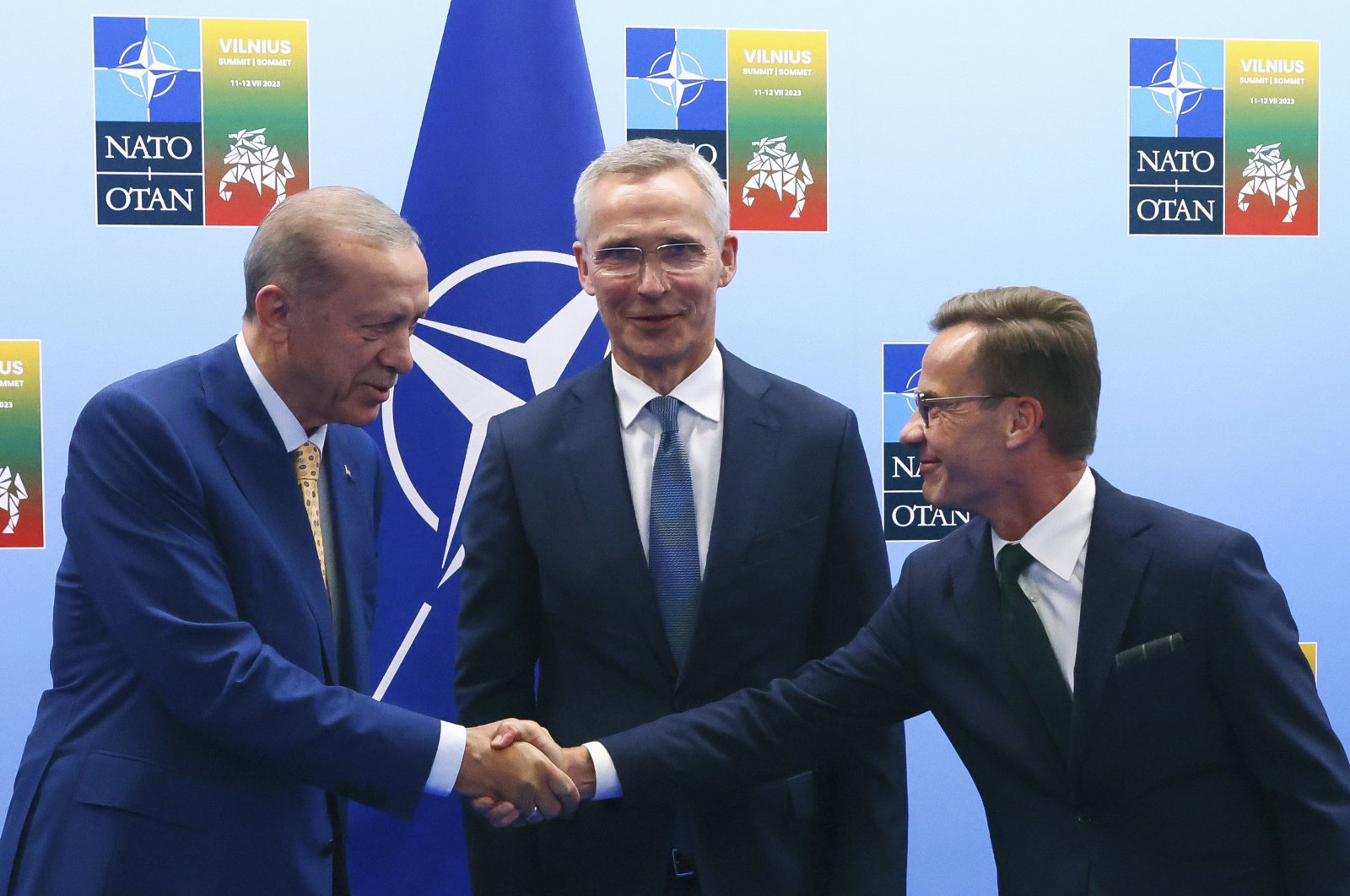
In a turbulent world and an increasingly unstable Middle East, NATO remains one of Türkiye’s greatest security assets
On Tuesday, the Turkish Parliament ratified the agreement paving the way for Sweden to become a full member of the NATO alliance. Hungary is now the only other NATO member state still needing to approve Sweden's membership application.
This move by the Turkish Parliament is consistent with Türkiye's traditional policy of favoring NATO expansion and inter-alliance solidarity for regional peace and stability in the Euro-Atlantic. It also sends a clear message that Türkiye will continue to develop relations with the BRICS (Brazil, Russia, India, China and South Africa) group countries, as well as Egypt, Iran, Saudi Arabia, the United Arab Emirates (UAE) and Qatar, in addition to maintaining good relations with NATO allies, and not in spite of them. Türkiye has been accused of shifting away from the Euro-Atlantic alliance, but its diversification in foreign policy toward developing stronger relations in Asia (Asia Anew) is part of a broader strategy.
While time will demonstrate if Sweden will efficiently cooperate with Türkiye on counterterrorism measures once it becomes a NATO member, Swedish membership will also bring collaboration opportunities within NATO and between Türkiye and Sweden.
Earlier last month, the Parliamentary Foreign Affairs Committee, led by current member of Parliament (MP) and former Vice President Fuat Oktay, approved the proposal signed by President Recep Tayyip Erdoğan, paving the way for the parliamentary ratification of Sweden's NATO membership. Yesterday's approval by Parliament was the final step for Türkiye to ratify NATO expansion, bringing Sweden one step closer to NATO.
Since the Madrid Agreement signed on June 28, 2022, between Türkiye, Sweden and Finland, Ankara had, in principle, not objected to NATO membership for these two nations. The Turkish Parliament approved Finland's application on March 30. However, Türkiye had expressed concerns over Sweden's membership, leading to a delay in approval. Since then, both the Foreign Affairs Committee and Parliament have been convinced that Sweden has addressed Türkiye's legitimate security concerns. Assuming Hungary also approves, Sweden will likely become the 32nd NATO member country by the next NATO summit in Washington on July 9-11.
Counterterrorism efforts
As a future NATO country, Sweden must continue actively collaborating with Türkiye by developing political and military cooperation to enhance regional security and combat international terrorism. Türkiye is actively fighting organized crime, drug trafficking and terrorist groups, taking the issue of fighting against multiple terrorist groups such as PKK and its affiliates in various countries, the Gülenist Terror Group (FETÖ) and Daesh very seriously.
It is no coincidence that the NATO Center of Excellence on Defense Against Terrorism (COE-DAT) is in Ankara. As a future member, Sweden needs to contribute to the fight against terrorism.
Sweden's advanced economy and industry will provide opportunities to cooperate with Türkiye and other NATO countries on defense industry and logistics projects. The Swedish Navy and commercial fleet would be significant contributions to the alliance.
Alternative routes
With Sweden's membership, all Nordic countries will become NATO members, bringing a new dynamic to the Arctic region. Considering disruptions in the Red Sea and the slowdown in the Panama Canal, alternatives using the North Pole passages might become more actively used maritime trajectories in the future. The geopolitical importance of a possible commercial shipping route through the Arctic due to global warming would increase, making northern countries close to this route more strategically important. Sweden, along with Finland, can strengthen NATO's Arctic missions.
In terms of geopolitics and geo-economics, Türkiye has many advantages. Its strategic location is advantageous for trade with many parts of the world through land and sea, offering alternative trajectories for supplying goods and raw materials. Türkiye requires considerable investments to develop infrastructure and reach its potential as a logistics, trade and energy center. Global trade disruptions make Türkiye a reliable alternative production and industry base for the European market, including Sweden, presenting opportunities for both countries.
In a turbulent world and an increasingly unstable Middle East, NATO remains one of Türkiye's greatest security assets. It is a bastion of political and military solidarity for member states. Türkiye has historically supported new nations joining NATO and did not object to the re-admissions of France and Greece to NATO's military wing. Despite occasional differences, Türkiye's role as a vanguard of the Atlantic alliance remains a key component of its foreign and security policy. The recent ratification of Swedish membership demonstrated that Türkiye acted soundly and responsibly. Sweden must now follow up on positive steps taken on counterterrorism.
It remains to be seen if the U.S. Senate will approve the supply of upgraded F-16 fighter jets to Türkiye. As a vanguard of NATO, Türkiye must be supported by its allies, especially in transferring advanced military equipment and technology. Opportunities for collaboration between Türkiye and Sweden extend beyond military weapons to various technologies in the military-industrial area, such as search and rescue, disaster recovery, and the environment. Sweden can actively pursue a more positive image in Türkiye even after NATO membership. Ongoing cooperation, including joint missions like sending the first Turkish and Swedish astronauts on the same mission, presents opportunities for future solidarity between Türkiye and Sweden.
In conclusion, Sweden must continue actively engaging and cooperating with Türkiye and other NATO countries in political and security areas and not become complacent following a positive parliamentary vote by the Turkish Parliament. Hungary still needs to approve Sweden's NATO application for a unanimous decision by July 2024.
